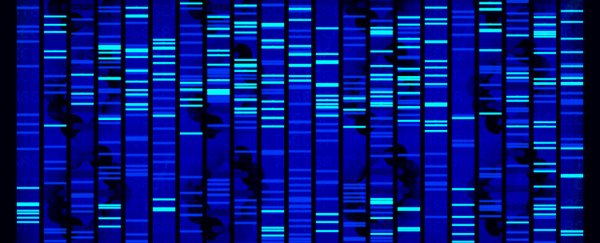In the same week that the US Food and Drug Administration (FDA) approved an anti-ageing drug trial for 2016, marking the first time it's recognised ageing, rather than a specific disease, as a new drug target, scientists in Switzerland have waded through 40,000 genes from three different organisms to identify the genes responsible for physical ageing.
The team from ETH Zurich also discovered that when these genes are altered, the healthy lifespan of laboratory animals could be extended, offering up the possibility of achieving something similar in humans.
The researchers started off with a selection of 40,000 genes that are common to the nematode worm C. elegans, zebra fish, and mice. To figure out which of these genes were directly related to the physical ageing process, they compared how active they were at three different life stages - young, mature, and old.
By feeding this information into a statistical model, they identified 30 of the 40,000 genes as being directly related to ageing in all three species. They also discovered that these genes were orthologous - meaning they're very closely related to each other, and all originated from a single gene of the last common ancestor shared by C. elegans, zebra fish, and mice. And humans, as it turns out, because we have those same 30 genes too.
"We looked only for the genes that are conserved in evolution and therefore exist in all organisms, including humans," said lead researcher Michael Ristow.
To test their effects, the researchers modified the messenger RNA (mRNA) that codes for these genes so they could selectively block their expression. In just less than half the genes, the blocking action caused the three species' lifespans to be increased by at least 5 percent, without any discernible decrease in health.
But one gene in particular, the bcat-1 gene, appeared to be incredibly influential in determining how long an animal would live. "When we blocked the effect of this gene, it significantly extended the mean lifespan of the nematode by up to 25 percent," said Ristow.
Publishing in Nature Communications, Ristow and his colleagues say that bcat-1 gene carries an enzyme that actively breaks down branched-chain amino acids, including the amino acids L-leucine, L-isoleucine, and L-valine. Those three are among the nine essential amino acids for humans, which means they're crucial for maintaining our muscle development and overall health. They're currently being used to treat liver damage, and you'll often find them listed as ingredients of sport nutrition products.
When the activity of the bcat-1 gene was blocked in nematode worms, these branched-chain amino acids were free to accumulate in the tissue, which the researchers linked to the observed increase in lifespan. And even with 25 percent longer lifespans, the worms were moving and reproducing in old age just like they were in their prime.
While lengthening the healthy lifespan of nematodes is all well and good, it doesn't really help us until we know for sure that similar effects can be achieved in humans. That's what Ristow and his team plan to investigate next. The ultimate goal wouldn't be to find a treatment that ensures a longer lifespan for humans, but rather to figure out how we can stay physically healthier for longer. And who doesn't want that?
